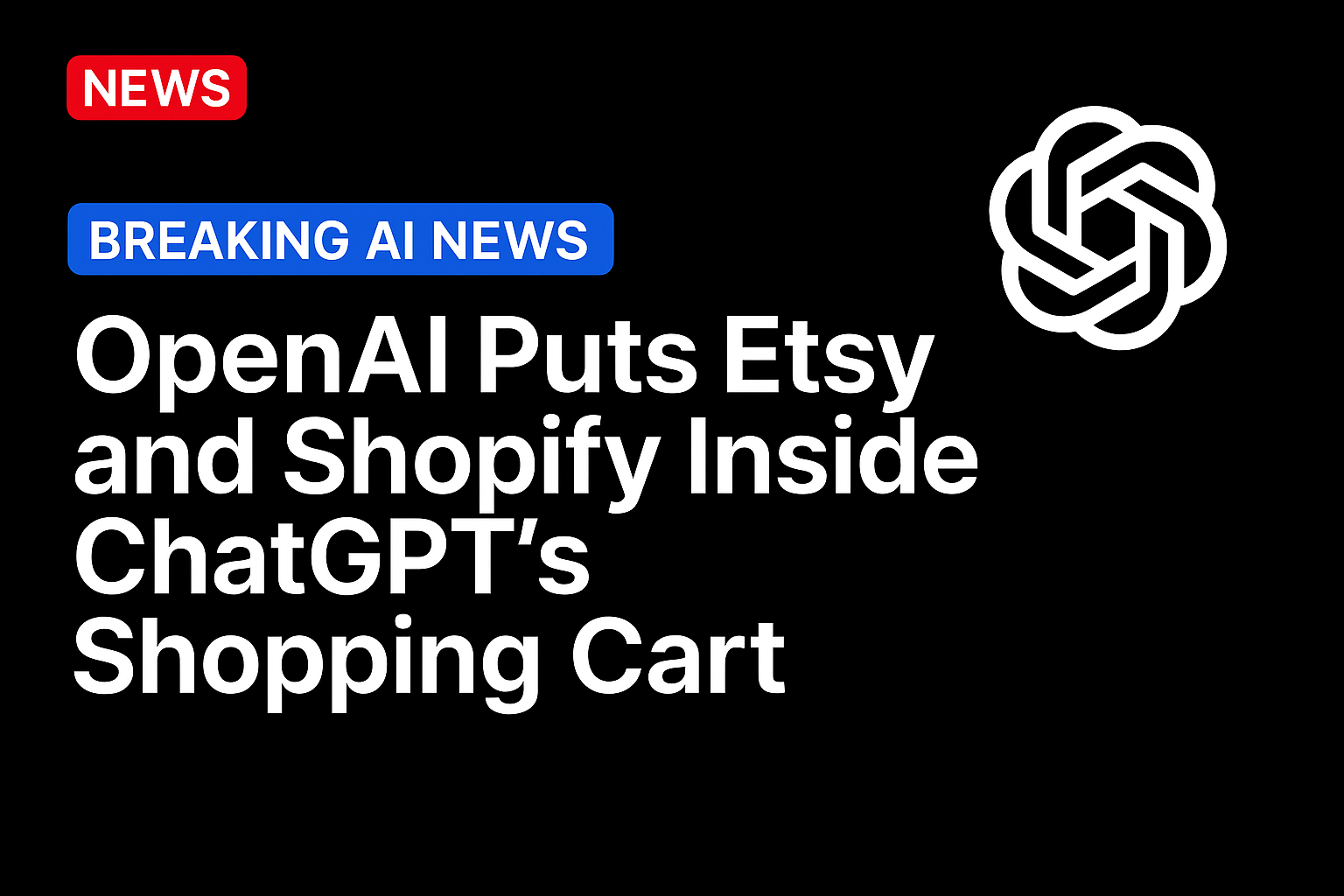
OpenAI’s launch of Buy It in ChatGPT marks another touchpoint on the agentic artificial intelligence (AI) roadmap. With Instant Checkout, ChatGPT shifts from being a conversational assistant to becoming a transactional platform that collapses search, discovery and payment into a single flow.
At launch, the feature supports Etsy products in the U.S., with Shopify’s more than 1 million merchants next in line. Instead of redirecting shoppers to external sites, ChatGPT now enables them to tap “Buy,” confirm payment and shipping, and complete the purchase inside the chat. The system runs on Stripe’s Agentic Commerce Protocol, co-developed with OpenAI and open-sourced from day one. It signals a transformational shift in the future of eCommerce.
This development signals a wholesale shift from search-driven, multistep shopping toward agent-mediated commerce. TechCrunch framed the feature as OpenAI’s boldest attempt yet to challenge Google and Amazon in discovery. Reuters noted that capital markets responded keenly, with investor sentiment toward Etsy and Shopify improving after the announcement. For OpenAI, this creates a new monetization dimension: free-tier engagement can convert into transaction revenue.
Testing the Prompt Economy
PYMNTS ran a test where we asked ChatGPT for a décor poster under $10. The chat showed several product options, but only Etsy listings carried the “Pay Here” button. Other items redirected externally. Once the search was narrowed to show only Etsy results, we were able to select a $2 poster and complete the purchase entirely within the chat. The card details were prefilled, the shipping information auto-completed, and the payment processed instantly.
For a low-cost item, the flow was seamless. But scaling this to a $2,000 sofa or $500 electronics raises serious trust and design questions: Will consumers feel comfortable ceding control? What verification, consent, or fraud protections are in place?
OpenAI’s documentation addresses some of this: The protocol uses encrypted payment tokens authorized only for specific amounts and merchants and insists that users explicitly confirm each step before a purchase executes. Stripe emphasizes that all payments run on tokenization rails and fraud-prevention layers already used across its global network. But the system’s robustness under high-value transactions is still untested at scale.
New Economics of Discovery and Payment
This feature represents a huge step in how discovery and payments converge. Rather than presenting a sea of links, ChatGPT surfaces a curated few. Visibility now shifts from search engine optimization and marketplace ads to AI optimization, structuring product and metadata to align with agent ranking logic.
That gap echoes Karen Webster’s warning that merchants not aligned with how AI agents rank and monetize risk becoming invisible. As she put it, “If your product does not appear in an agent’s results, for a consumer it effectively does not exist.” That dynamic is now live, and it could fundamentally reorder how value flows in the commerce ecosystem.
Payments are entering a new phase. Webster has predicted a future where digital wallets may fade away, replaced by agents that store credentials and transact invisibly. She called this vision Zero Checkout, where authenticated agents complete purchases in the background without requiring user input. Instant Checkout is the first visible step toward that reality.
The payments industry is already laying the groundwork. Stripe’s Agentic Commerce Protocol integrates with Visa’s Shared Payment Token, allowing apps to initiate payments without exposing raw card data. Mastercard has introduced Agent Pay, which uses tokenization and agent registration to authenticate AI-driven transactions. Both networks are positioning themselves as foundational trust layers for an AI-commerce ecosystem.
This step elevates AI agents into curators. Webster has argued that agents will transform the endless aisle into personalized storefronts, acting as both storefront and salesperson. The poster test showed how that plays out. Instead of browsing multiple tabs, ChatGPT produced a shortlist and completed the transaction.
But concentration of power brings risk. As Webster has cautioned, “If agentic interfaces come to resemble ad-driven search engines, consumer trust could evaporate.” For now, OpenAI says that results are not sponsored and that Etsy products with checkout are not given preferential ranking.
The real power of Instant Checkout is not in enabling a $2 poster purchase. It’s the precedent: discovery, checkout and payment collapsing into a single conversational flow. Consumers gain speed and personalization. Merchants must adapt to remain visible to agents. OpenAI unlocks a new monetization engine. Regulators must revisit frameworks around transparency, liability and competition.
PYMNTS has reported that agentic commerce will reshape competitive dynamics across retail, travel and financial services, creating new gatekeepers of digital attention.
Source: https://www.pymnts.com/

